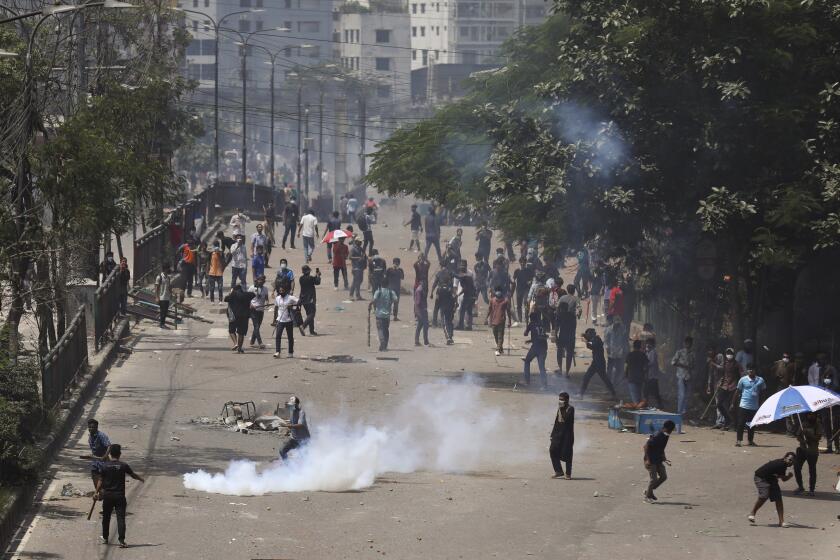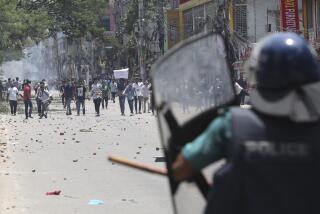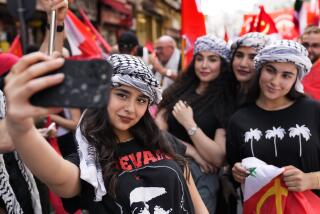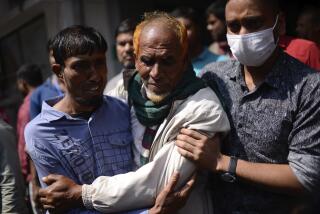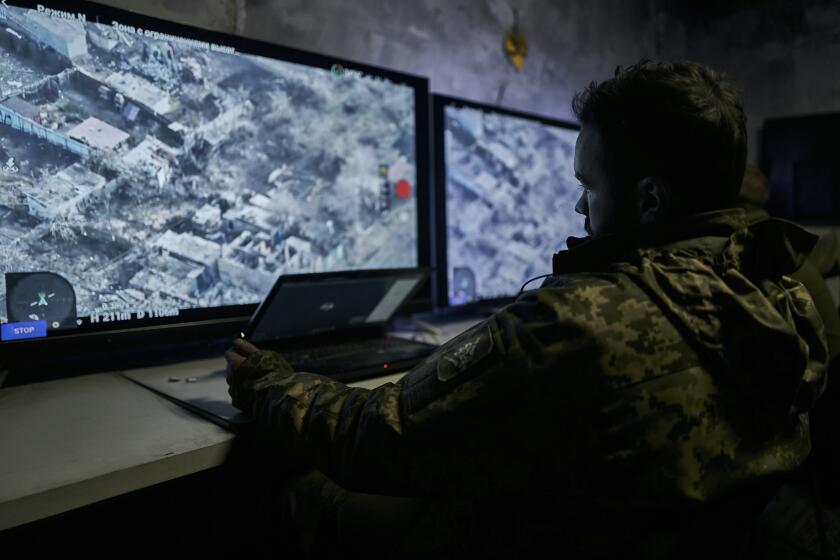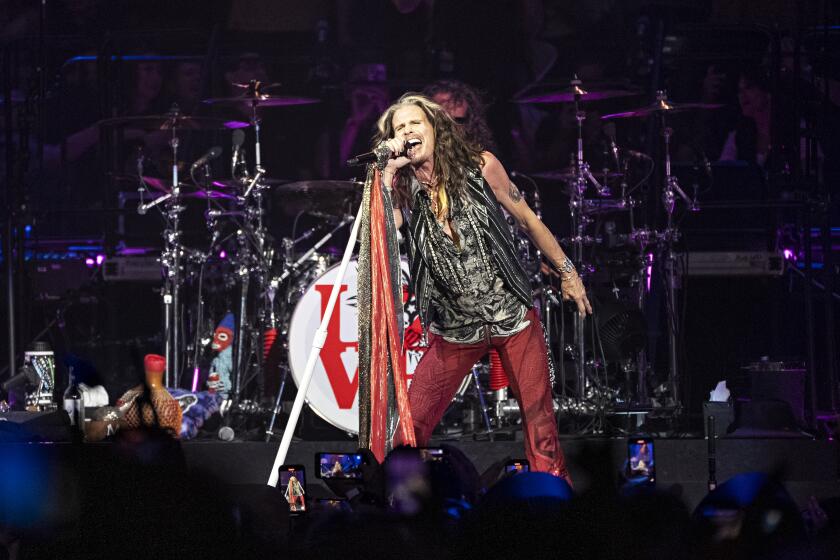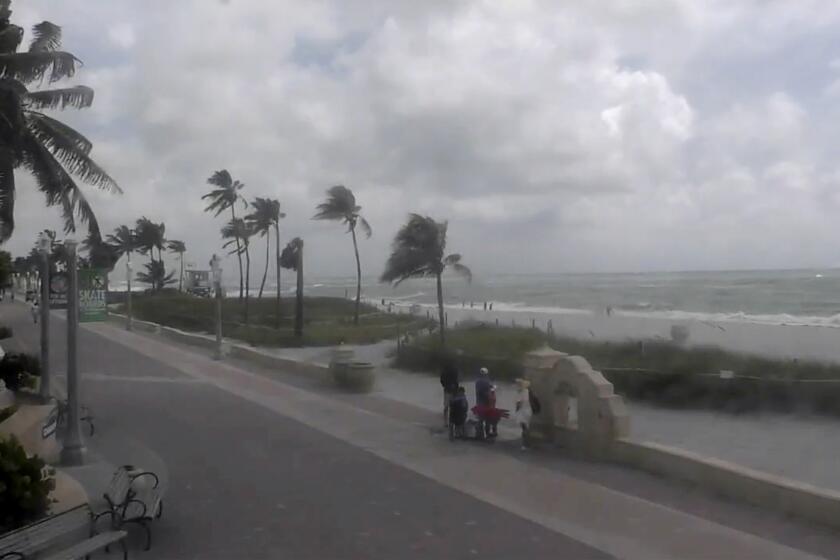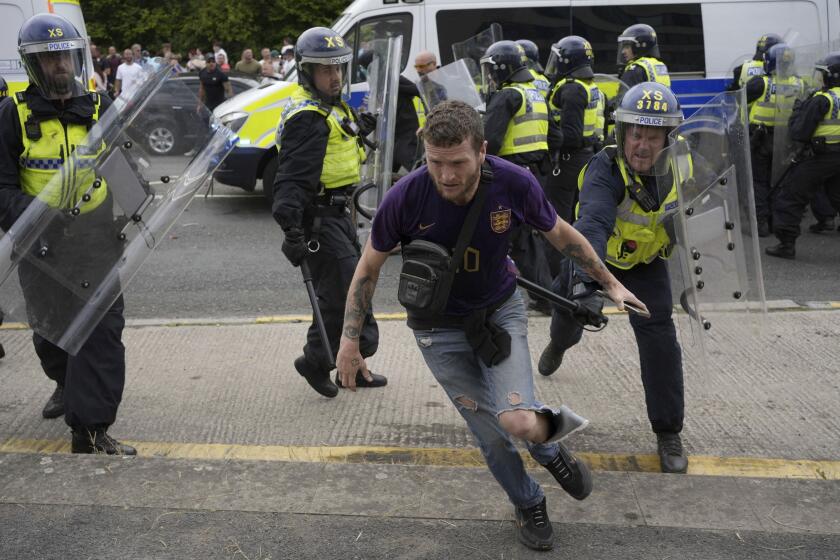Violence in Bangladesh leaves dozens dead, hundreds injured as protests continue

Dozens have been killed and hundreds injured as renewed protests swept across Bangladesh, with protesters calling for the government to resign as the prime minister accused them of “sabotage” and cut off mobile internet in a bid to quell the unrest.
The country’s leading Bengali-language daily, Prothom Alo, said at least 49 people died in Sunday’s violence. Channel 24 reported at least 50 deaths.
As the violence raged, Prime Minister Sheikh Hasina said those who were engaging in destruction in the name of protests were no longer students, but criminals, and said the people should deal with them with iron hands.
The ruling Awami League party said the demand for Hasina’s resignation shows protests have been taken over by the main opposition Bangladesh Nationalist Party and the now-banned Jamaat-e-Islami party.
Demonstrators are demanding Hasina’s resignation, after earlier protests in July that began with students calling for an end to a quota system for government jobs escalated into violence that left more than 200 dead.
Bangladesh is observing a day of mourning in memory of more than 200 people killed in recent weeks during student protests.
Also Sunday, the government announced a holiday from Monday to Wednesday. Courts will remain closed for an indefinite period. Mobile internet service was off Sunday, and Facebook and messaging apps including WhatsApp were inaccessible even on broadband internet.
Junior Minister for Information and Broadcasting Mohammad Ali Arafat said Sunday that mobile internet and messaging services were off to help prevent violence.
Authorities closed schools and universities across the country, blocked internet access and imposed a shoot-on-sight curfew. At least 11,000 people have been arrested in recent weeks.
The protests posed the most serious challenge to Bangladesh’s government since Prime Minister Sheikh Hasina won a fourth consecutive term in January.
Protesters called for a “non-cooperation” effort, urging people not to pay taxes and utility bills and not show up for work on Sunday, a working day in Bangladesh. Offices, banks and factories opened, but commuters in Dhaka and other cities faced challenges getting to work.
Protesters attacked Bangabandhu Sheikh Mujib Medical University, a major public hospital in Dhaka’s Shahbagh area, burning several vehicles.
Video footage showed protesters vandalizing a prison van at Dhaka’s chief metropolitan magistrate’s court. Other videos showed police clashing with protesters, some of whom set fire to vehicles and the ruling party’s offices.
In Dhaka’s Uttara neighborhood, police fired tear gas to disperse hundreds of people who blocked a major highway. Protesters attacked homes and vandalized a community welfare office in the area, where hundreds of ruling party activists took up positions. Some crude bombs were detonated and gunshots were heard, witnesses said.
Most of the deaths happened in the district of Feni in southeast Bangladesh, where at least five people died as Hasina’s supporters clashed with protesters.
Asif Iqbal, a resident medical officer at a state-run hospital in Feni, told reporters that they had five bodies at the hospital and all of them had been shot. It was not clear whether they were protesters or ruling party activists.
In Munshiganj district near Dhaka, hospital official Abu Hena said four people were declared dead after being rushed to a hospital with injuries.
Jamuna TV station reported violent clashes between protesters and police and ruling party activists in more than a dozen districts.
The protests began last month as students demanded an end to a quota system that reserved 30% of government jobs for the families of veterans who fought in Bangladesh’s war of independence against Pakistan in 1971. As violence crested, the country’s Supreme Court scaled back the quota system to 5% of jobs, with 3% for relatives of veterans, but protests have continued demanding accountability for violence the demonstrators blame on the government’s use of excessive force.
The system also sets aside jobs for members of ethnic minorities, and disabled and transgender people, whose quotas were cut from a collective 26% to 2% in the ruling.
Hasina’s administration has blamed the main opposition Bangladesh Nationalist Party and the banned right-wing Jamaat-e-Islami party and their student groups for instigating violence.
Mirza Fakhrul Islam Alamgir, secretary-general of the main opposition party, repeated a call for the government to step down to stop the chaos.
Hasina offered to talk with student leaders on Saturday, but a coordinator instead reiterated a demand for her resignation.
The protests have become a major challenge for Hasina, who has ruled the country for over 15 years, returning to power for a fourth consecutive term in January in an election that was boycotted by her main opponents.
Alam writes for the Associated Press.
More to Read
Sign up for Essential California
The most important California stories and recommendations in your inbox every morning.
You may occasionally receive promotional content from the Los Angeles Times.

